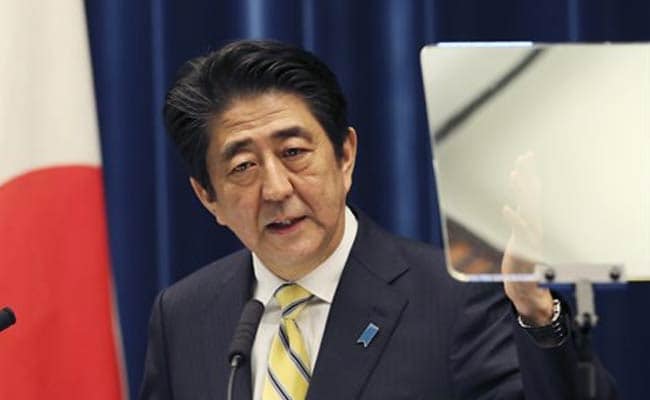
Shinzo Abe is expected to become the first Japanese prime minister to address a joint session of the US Congress next month, crowning a visit focused on deepening trade and military ties.
Abe is due to make the speech during a trip to Washington at the end of next month, diplomatic and legislative sources told AFP, with an official announcement expected soon.
Few Japanese politicians have ever addressed Congress and none have done so in a coveted joint session of the Senate and House of Representatives.
Japan's neighbors, which have perennially strained ties with Tokyo given the bitter legacy of World War II and ongoing territorial disputes, were muted in their reaction.
Seoul urged Abe to use the opportunity to express his "sincere repentance" for wartime atrocities, while China's foreign ministry merely noted the reports of the invitation.
"If the speech by Prime Minister Abe is made, it should share the view about history held by (Japan's) previous governments and show sincere repentance for the past," an official with South Korea's foreign ministry told journalists.
He said that while Abe's government has publicly endorsed a 1995 apology for wartime wrongs, ministers were pushing for more emphasis on patriotism in schools and making visits to a shrine that honors the war dead, including convicted war criminals.
Seoul also believes Tokyo has yet to fully atone for the excesses of its colonial past and the forced recruitment of South Korean women to wartime military brothels.
The friction is a source of irritation for Washington, which would rather see its two key regional allies bury the hatchet and instead focus on forming a united front against an increasingly assertive China.
The issue of wartime sex slavery was also behind some US opposition to Abe's invitation, sources said.
Japan says it has already apologized, offered financial compensation and psychological help to victims.
Diplomatic sources said that Abe's speech was expected to echo some of the themes from his July address to the Australian parliament, where he expressed humility about the "evils and horrors" of Japan's history.
"This is a tremendous opportunity for Prime Minister Abe to allay concerns, misgivings or miscomprehension in some instances here in Washington about what position on the past is, on Japan's behavior during World War II," said Sheila Smith of the Council on Foreign Relations.
"This is a good moment for a global public to hear him first hand talk about the importance and significance of the past in shaping Japan's future ambitions."
Diplomatic coup
Seoul's JoongAng Ilbo newspaper described the invitation as a diplomatic coup for Abe.
It said it may have been a reward for Japan's participation in the US-led Trans-Pacific Partnership free trade agreement -- one of the areas where Washington and Beijing are jostling for influence.
Abe's visit is likely to push forward talks on the partnership -- a trade deal bringing together a dozen nations including Australia, Japan, Mexico, the United States and Vietnam.
Negotiators hope that by the time Abe arrives, President Barack Obama will have won backing from Congress to close negotiations on the deal.
Obama is seeking so-called fast-track authority that would allow the White House to secure the deal and submit it in its entirety to Congress to ratify, without the power to make amendments.
The US government estimates the country ships almost $2 billion worth of goods to Trans-Pacific countries every day.
But Obama faces some opposition in Congress, chiefly from within his own Democratic party, and from trade unions who worry about labor standards in the signatory countries and that jobs may be shipped overseas.
If Obama gets the authority from Congress, diplomats say a comprehensive trade deal could be signed quickly after.
Rising China
The visit is also expected to develop closer military ties between the two countries. Efforts are already under way to update "defense cooperation guidelines" that govern military relations.
China has for years been ramping up its military spending and expanding its hardware as it looks to become a "Blue Seas" power capable of projecting force beyond its immediate region.
This has sparked a US "pivot" toward Asia as well as provoked concern in the region, and Japan this year approved its biggest ever defense budget, with its third straight annual rise in funding.
The change in the defense guidelines comes after Japan revised the way it interprets its constitution, which has long been held to limit the country's military to a narrowly defined defensive role.
Under the new interpretation, Japanese forces would - in certain circumstances - be able to come to the aid of allies under attack, in so-called "collective defense."q
Track Latest News Live on NDTV.com and get news updates from India and around the world

